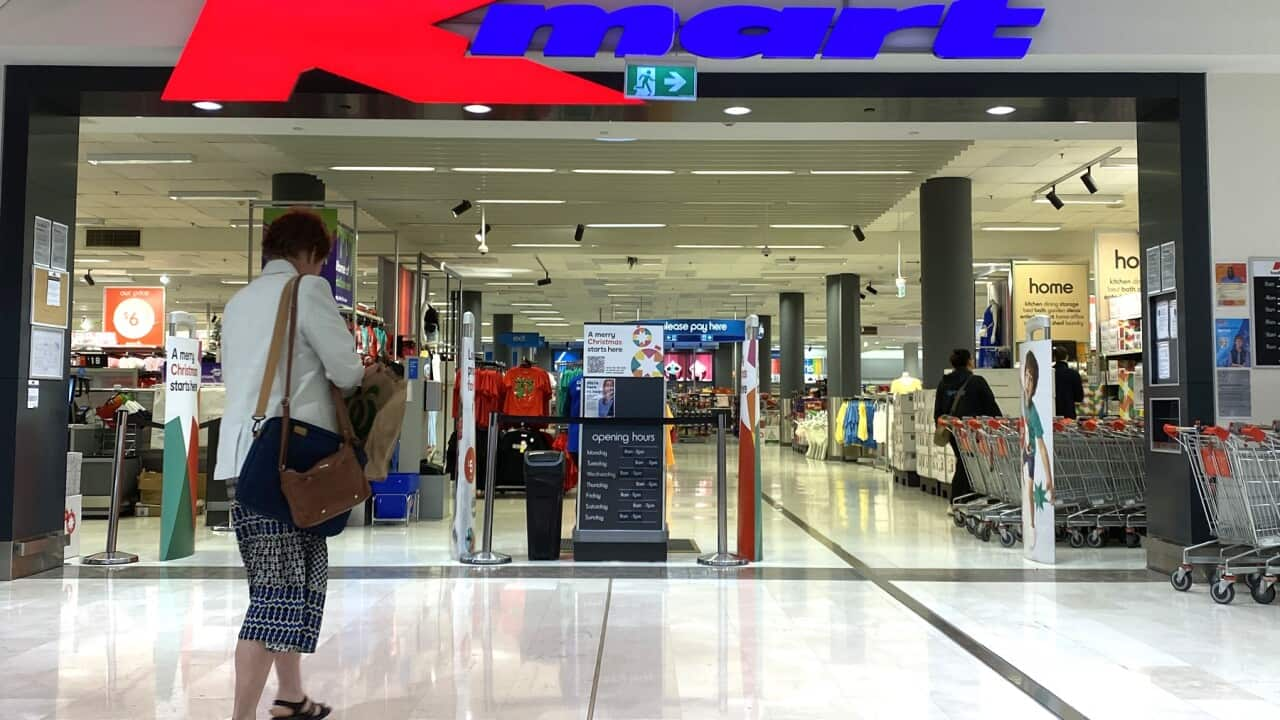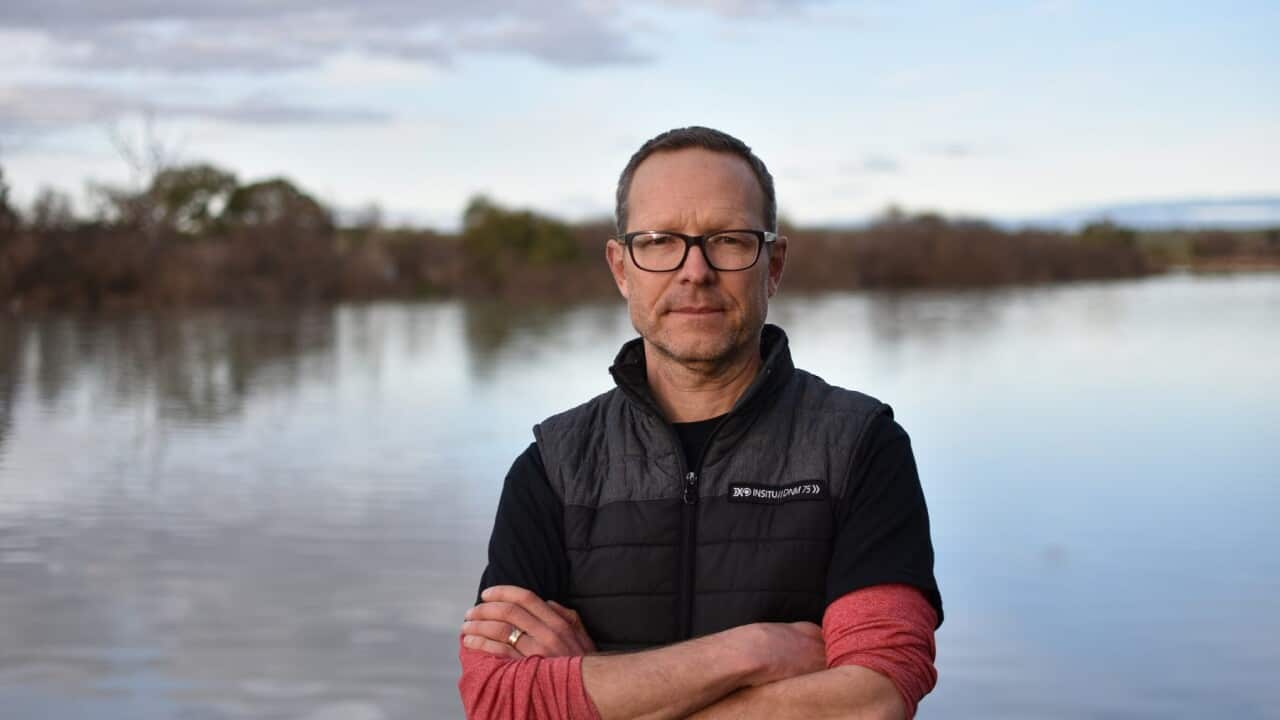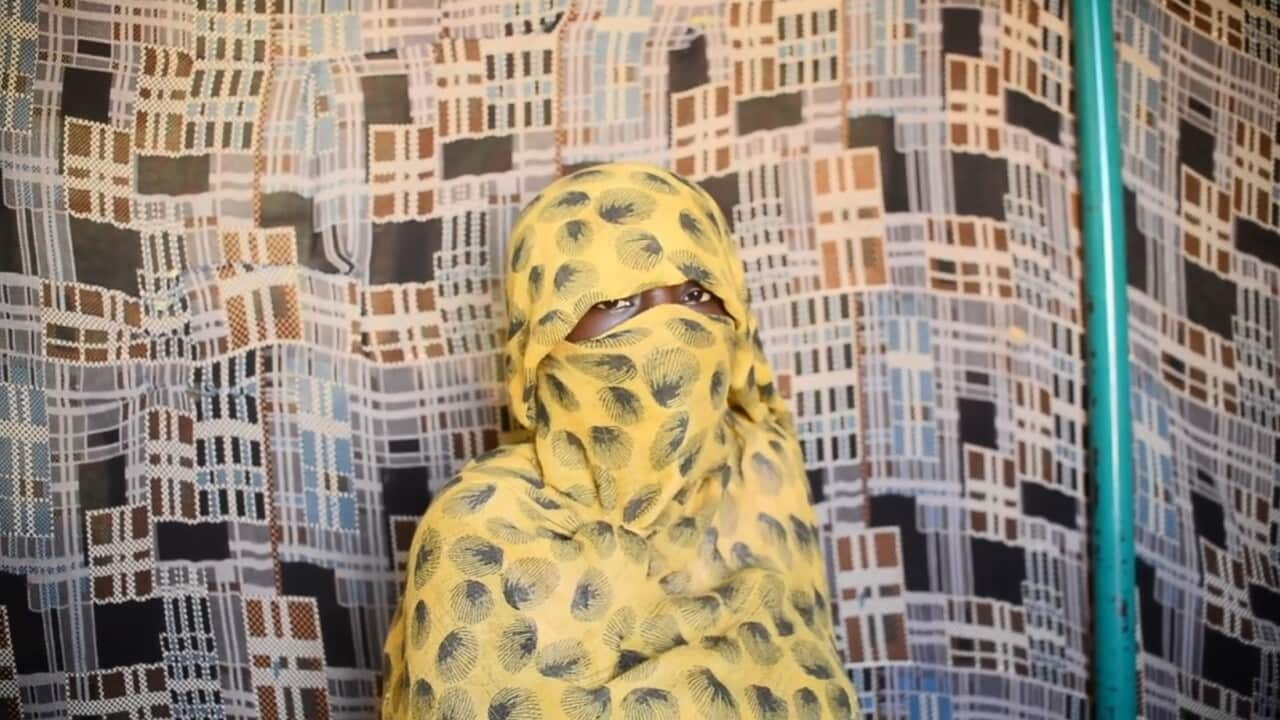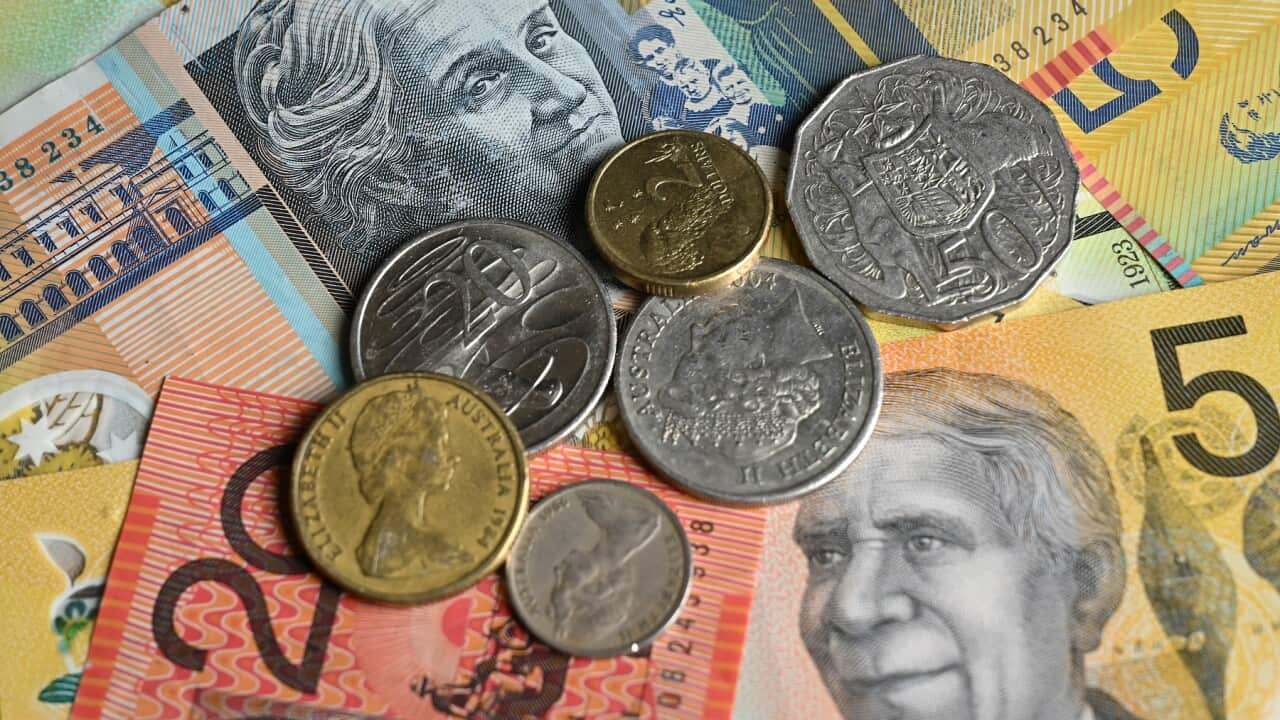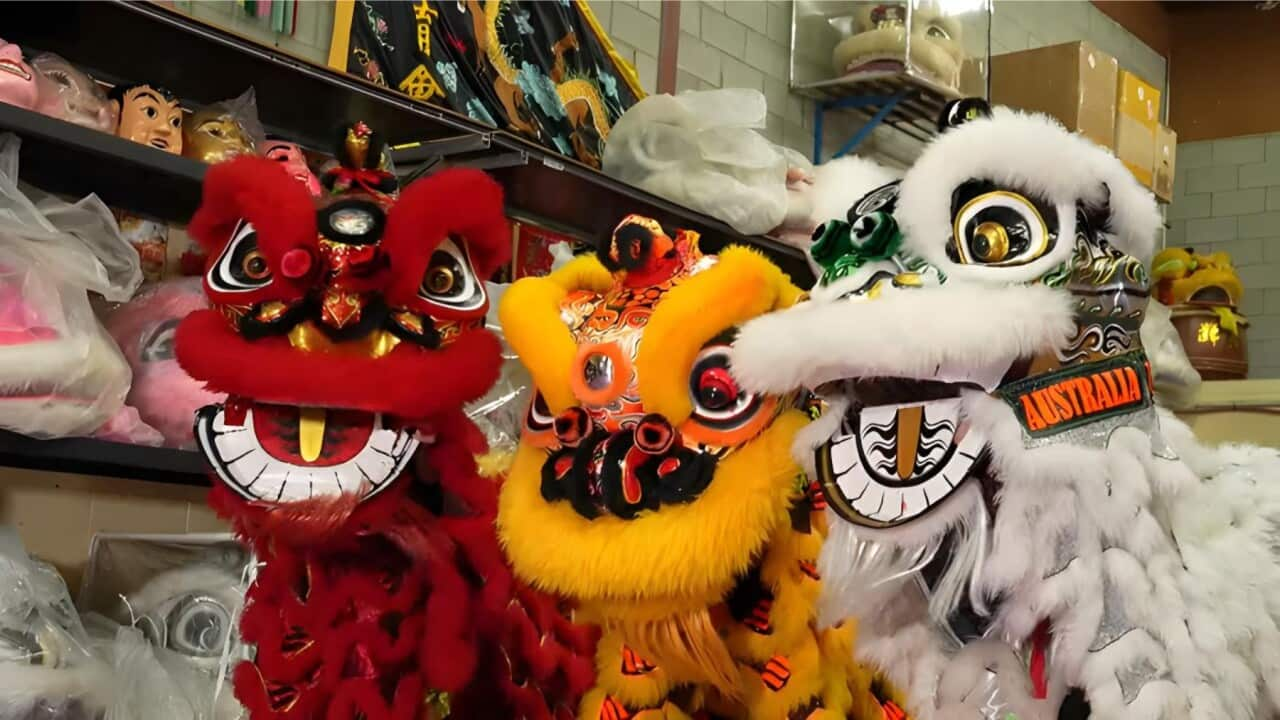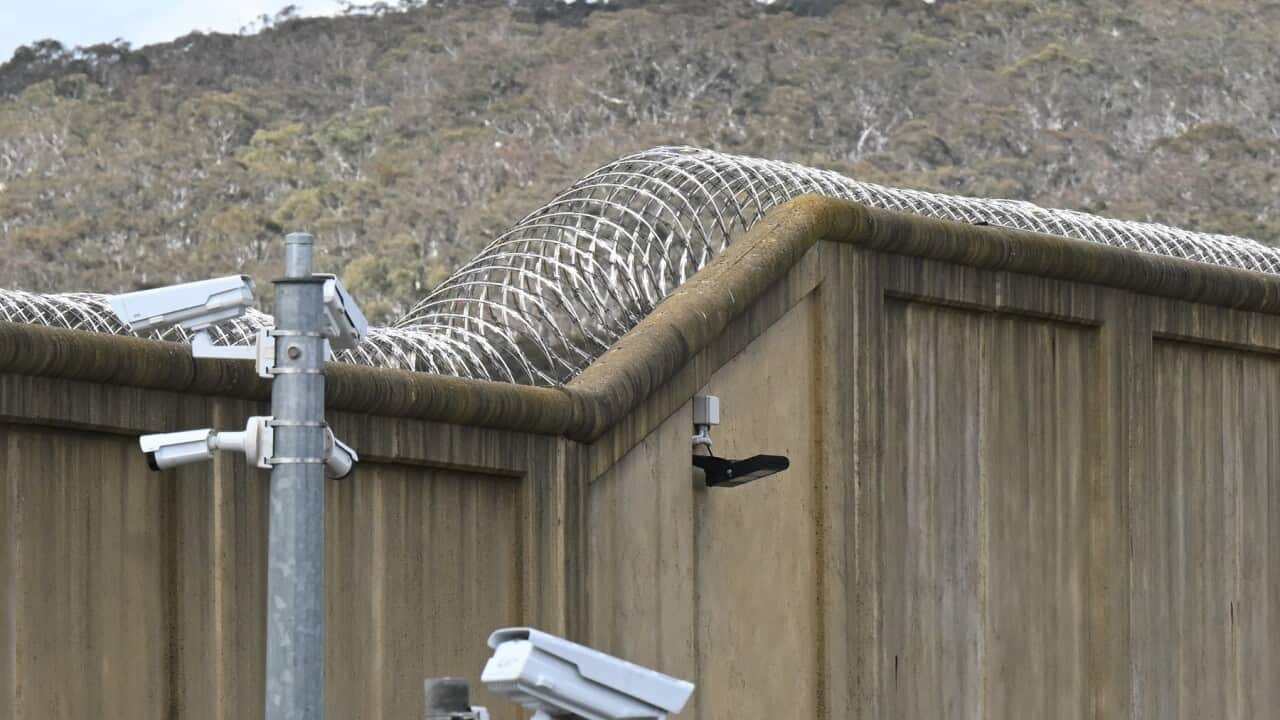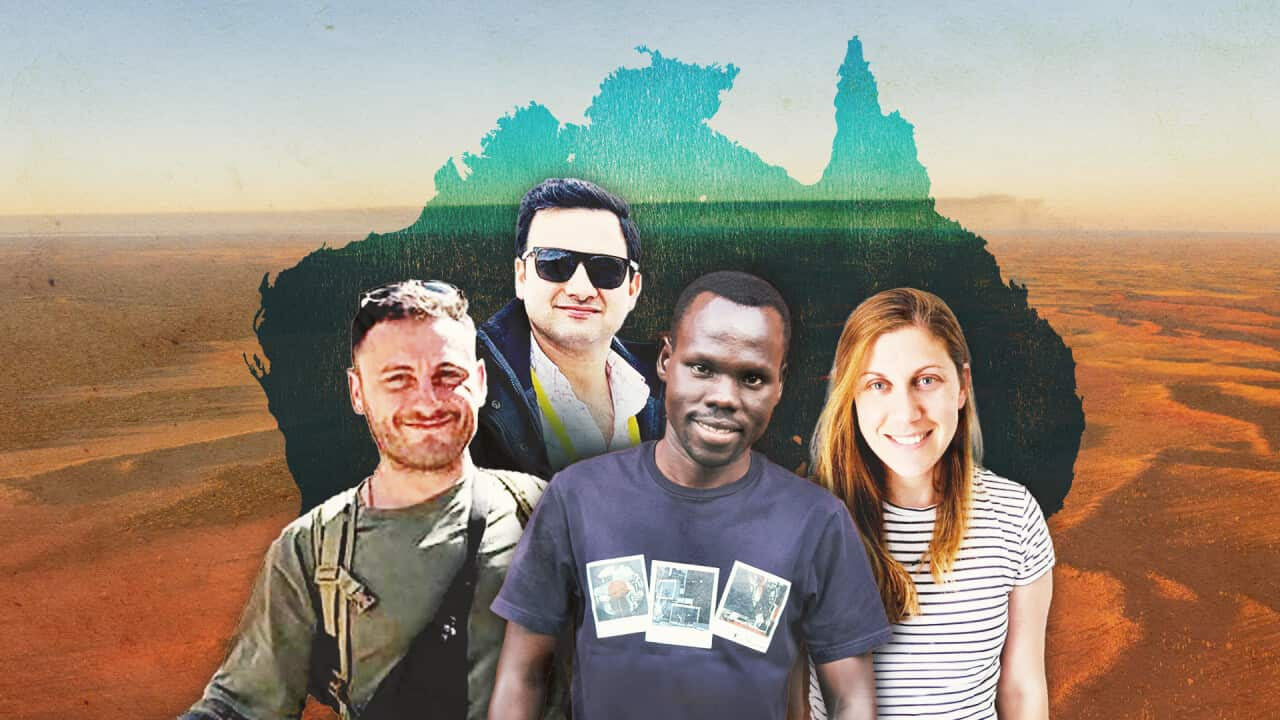Listen to Australian and world news, and follow trending topics with SBS News Podcasts.
TRANSCRIPT
While many people may think of slavery as a thing of the past, more people are living in slavery today than ever before.
While large companies in Australia are required to report on how they're addressing modern slavery risks in supply chains, there are no real penalties for inaction.
Now, an organisation of Uyghur women are taking matters into their own hands by launching legal action against major retailer Kmart.
The group says they have a reasonable belief that Kmart is sourcing some products from supply chains linked to forced Uyghur forced labour camps.
Kmart denies this.
Jen Kanis, Principal Lawyer at Maurice Blackburn Lawyers, is representing the Uyghur group.
"We filed a legal action in the federal court to determine if Kmart has engaged in misleading conduct about the use of forced labou r in their supply chain. And the reason why we've done that is because our client is concerned that Kmart is engaging in misleading and deceptive conduct in relation to what they say about their ethical sourcing claims."
In a statement, Kmart say they have in place an Ethical Sourcing Program, which helps to identify and mitigate modern slavery risks, including the risk of forced labour.
But with allegations of credible links made between their listed suppliers and factories linked to forced Uyghur labour, the legal action is calling on Kmart to share documents clarifying the matter.
Ramila Chanisheff is the President of the Australian Uyghur Tangritagh Women’s Association, the group filing the legal action.
She says that Kmart and other major retailers need to be transparent.
"The ultimate aim is to know that Kmart doesn't engage with supply chains that have Uyghur forced labour or any slave labour. And that also goes obviously for other industries as well. Now Australia, it's illegal to have modern day slavery in Australia, and yet we find that the government legislations and laws in place are not strict enough. Are not strong enough to hold industries to account, and this is where it falls short, I think. We can prove or we can say, and we can provide credible evidence that could be or to force labour and supply chains, but if the government doesn't take it to the next level, it seems that industries are getting away with it."
The Uyghur people are a majority Muslim, Turkic-speaking, ethnic minority living in an area of north-west China known officially as the Uyghur Autonomous Region of Xinjiang, or East Turkestan to its Uyghur population.
Since 2017, it's estimated that Chinese authorities have arrested over one million Uyghur people from the region.
The Chinese Government then detains them in what officials call re-education camps... but which some experts on the matter describe as more akin to concentration camps.
The involuntary transfers and forced labour of Uyghur people are well documented, enforced by Chinese officials under the guise of vocational training and poverty alleviation.
Ms Chanisheff says every person in the Uyghur community has either immediate or extended family taken to camps.
"All of us have been affected in some way, whether it is like our close relatives or secondary relatives or family or friends. All of us have been affected in some way when these people, those who have been taken into the concentration camps, there wouldn't be any communication with them, whatsoever. But the communication that does happen are those who are obviously left outside and we do have people in the community and are able to contact them through WeChat, which is a Chinese government communication tool, which is heavily monitored."
Most people in the camps are arrested without charge.
Some of the reasons given for their detention include attending services at the Mosque, sending texts containing Quranic verses, and wearing religious attire.
In addition to mass arrests and surveillance, it's reported that Uyghur people are frequently subjected to forced sterilisation, sexual violence, separation of families, and torture.
While data on the matter is scarce due to a lack of transparency from the Chinese Government, it's believed that tens of thousands of Uyghurs have been shipped throughout mainland China to work, without pay, in factories.
The Chinese Government denies these claims.
Freya Dinshaw is the associate legal director at the Human Rights Law Centre, which is also representing the Uyghur group.
She says Australia has a serious problem with forced labour entering the market.
"We're obviously all connected by the clothes we wear and the things we buy. And it's estimated that $27 billion worth of goods that are at high risk of being made with forced labour are imported into Australia every year. So this problem is only increasing."
In Australia, the Modern Slavery Act only requires companies to report on actions to address risks of forced labour in supply chains.
Unlike the U-S, which says China's treatment of the Uyghur people amounts to genocide, Australia does not ban the import of products made in Xinjiang province, instead relying on a policy of transparency.
Freya Dinshaw saysthe Modern Slavery Act is not strong enough and must demand stronger corporate accountability.
"The Australian Modern Slavery Act should be about protecting the people who put the clothes on our back, who pick the food that we eat and make the goods that we all consume. Yet it is a fairly weak piece of legislation in terms of only requiring reporting and not going further to require action by companies. So there's an urgent need to ensure that Australian companies have a duty to prevent modern slavery so that they're legally required to investigate and address modern slavery in their supply chains and face hard if they don't. And Australia should also follow the lead of other countries like Canada and the US and banned goods made with forced labor from ending up on our shop shelves so that we can all be confident that the clothes we wear and the things we have aren't made at the expense of someone else's freedom."
If, through the legal action, it is revealed that Kmart is knowingly sourcing products from factories with links to forced labor, they could then be found to have engaged in misleading marketing by advertising ethical sourcing of all its products.
If this is the case, however, they would not face penalties for sourcing products made by slave labour, just for claiming they did not.
Jen Kanis says while this legal action is only preliminary, it could have wider impacts on the retail industry.
"So I guess the outcome of this case is about the documents, but what this case may lead to is a misleading and deceptive conduct claim. And I think that that has implications all retailers who make claims about ethical sourcing and being an ethical business. And it will mean that they won't be able to make those claims unless they can actually substantiate them."
Ramila Chanisheff says cheap clothing and strong economic ties with China should not come at the cost of human rights.
"We need to make sure that every product that hits our shelves is slavery free, and the owners should not be on the consumer because the consumer cannot do deep diving as to how this product is made. So it needs to sit with the industry, it needs to sit with the retailers, and it needs to sit with the government to ensure that Australian citizens or any other citizens, the world citizens, are not always questioning whether our product is being used at the expense of another person's life."
